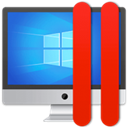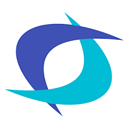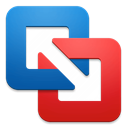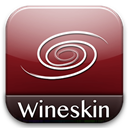Top Goldberg Emulator Alternatives for Seamless Gaming and Development
The Goldberg Emulator serves as a valuable tool for game developers and users looking to run Steam games offline or on a LAN without the full Steam client. It achieves this by emulating Steam online features and allowing the replacement of the Steam API DLL. While highly effective for its specific use case, there are situations where a Goldberg Emulator alternative might be a better fit, especially if you're looking for broader compatibility, different virtualization approaches, or more general Windows software support on Linux or Mac.
The Best Goldberg Emulator Alternatives
Whether you're a gamer seeking to expand your library beyond Steam's direct integration or a developer exploring alternative deployment methods, these Goldberg Emulator alternatives offer robust solutions.

Wine
Wine is a fantastic open-source compatibility layer that allows you to run Windows software directly on Linux, macOS, Android, and BSD systems without the need for a full virtual machine. While Goldberg Emulator focuses on Steam API emulation, Wine provides a broader solution for running a vast array of Windows applications and games, making it a powerful Goldberg Emulator alternative if you need to go beyond Steam-specific emulation.

PlayOnLinux
PlayOnLinux (and PlayOnMac) simplifies the process of running Windows games and programs on Linux, Mac, and FreeBSD. It leverages Wine, providing a user-friendly graphical interface to manage different Wine versions and prefixes for various applications. As a Goldberg Emulator alternative, PlayOnLinux offers a more curated experience for gaming, handling many of the complexities of Wine setup for you, which can be invaluable for non-technical users.

Proton
Developed by Valve Software, Proton is an open-source compatibility layer specifically designed for the Steam client to allow Windows-exclusive games to run on Linux. While Goldberg Emulator focuses on LAN/offline play without Steam, Proton integrates directly with Steam to enable broader game compatibility. If your primary goal is to play Windows games on Linux through Steam, Proton is a highly optimized and often superior Goldberg Emulator alternative.

Parallels Desktop
For Mac users, Parallels Desktop offers a comprehensive virtualization solution, allowing you to run Windows, Linux, or other operating systems and their applications concurrently with macOS. Unlike Goldberg Emulator, which focuses on Steam API emulation, Parallels Desktop provides a complete virtualized environment, making it an excellent Goldberg Emulator alternative if you need to run an entire Windows system for gaming, development, or any other Windows-dependent software.

CrossOver
CrossOver, a commercial product built upon Wine, provides an easier way to install and run many popular Windows applications and games on Intel OS X Mac, Linux, and even Chrome OS and Android devices. While Goldberg Emulator targets Steam API specific functionality, CrossOver offers a user-friendly interface and dedicated support for a wide range of Windows software, making it a convenient Goldberg Emulator alternative for general Windows application compatibility.

VMware Fusion
VMware Fusion provides Mac users with a robust commercial virtualization solution for running Windows applications and devices. Similar to Parallels Desktop, it creates a virtualized environment for a full Windows OS, offering seamless integration with macOS. If you require a complete Windows environment on your Mac for gaming, development, or using non-Steam Windows software, VMware Fusion is a powerful Goldberg Emulator alternative that excels in virtualization.

Q4wine
Q4Wine is an open-source Qt4 GUI for Wine, designed to help users manage Wine prefixes and installed applications on Linux, Mac, and BSD. While Goldberg Emulator is about Steam API emulation, Q4Wine provides a more accessible way to interact with Wine, allowing for fine-tuned control over your Windows application environments. It's a useful Goldberg Emulator alternative if you're already using Wine and want better management tools for your gaming or application setups.

Wineskin Winery
Wineskin Winery is an open-source tool for Mac OS X that creates self-contained wrappers for Windows software, essentially packaging Windows applications into native Mac application bundles. This is different from Goldberg Emulator's Steam API focus. Wineskin Winery is an excellent Goldberg Emulator alternative for Mac users who want to run specific Windows applications or games by creating portable, double-clickable Mac apps without needing a full Wine installation.

WineBottler
WineBottler is an open-source application for macOS that helps manage and wrap Windows applications into convenient OS X apps. Similar to Wineskin Winery, it focuses on making Windows programs runnable on Mac. While Goldberg Emulator is niche for Steam, WineBottler serves as a broader Goldberg Emulator alternative for Mac users who want to package Windows software for easy execution, offering features like running in existing Wine prefixes.

Vineyard
Vineyard is an open-source collection of tools and libraries designed to simplify the management of Windows programs on Linux. While it doesn't offer direct Steam API emulation like Goldberg Emulator, Vineyard provides a foundational set of utilities for working with Wine on Linux. As a Goldberg Emulator alternative, it's more of a behind-the-scenes toolkit for those who prefer to fine-tune their Wine environments for various Windows applications, including games.
Choosing the right Goldberg Emulator alternative depends heavily on your specific needs. Whether you're aiming for broad Windows compatibility, a streamlined gaming experience on Linux, or full operating system virtualization, the options above provide robust solutions to enhance your computing and gaming endeavors.